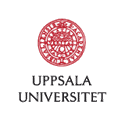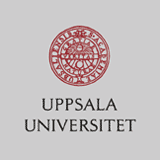Kursinformation finns inte tillgänglig på svenska, visar engelsk kursinformation.
Advanced Molecular Imaging Training Course (PET, MR, SPECT,and CT), 4 hp
| Kursnummer | - |
| År | 2023 |
| Typ | Methodcourse |
| Spår | Cancer, Cardiovascular diseases, Drug development, Infection, Inflammation, Metabolism, Muscoloskeletal system, Neuroscience, |
| Max antal deltagare | 16 |
| Sista ansökningsdag | 2023-01-23 |
| Språk | En |
| Kursansvarig | Ram Kumar Selvaraju |
| Institution | Preclinical PET-MRI Platform, Department of Medicinal Chemistry |
| Besöksadress | |
| Postadress | Dag Hammarskjöldsv 14C, 3 tr, 751 83 Uppsala |
| Datum | Wk15 (11-12); Wk16 (17-18); Wk17 (24-25); Wk18 (02); Wk19 (08-09); Wk20 (15-16): Wk21 (22-23) (Home exam);Wk22 (29) |
| Lokal | Preclinical PET-MRI Platform, Dag Hammarskjöldsv 14C, 3 tr, |
| Kurslängd | 14 days |
| Kursrapport | |
| Kursplan |
Beskrivning
Description:
This course is designed mainly for Ph.D. students. It will be an introduction to the realms of molecular imaging techniques in preclinical settings. Emphasis is on using state-of-the-art modalities -
• Positron emission tomography (PET)
• Magnetic resonance imaging (MRI)
• Computed tomography (CT), and
• Single-photon emission computed tomography (SPECT).
These are the advanced approaches used for drug development, in visualizing or evaluating the pharmacokinetics of novel tracers associated with various diseases in a living model. Lectures on principles of imaging modalities and hands-on lab sessions in study design, subject preparation, image acquisition, reconstruction methods, data analysis, and basic kinetic modeling will be provided.
FELASA C certification is not a requirement for this course.
Interested post-doctorates and researchers have to pay a course fee of 10000 SEK.
Departments will be charged SEK 2,000 per student who registers for the course but fails to participate.
Registered participant(s) who wants to quit is requested to inform us 6 weeks before the course commences. A reminder will be sent to the applicant(s) on the waiting list, who applied the earliest.
Applicants are requested to attend a radiation safety course before attending this training. It is not mandatory for applying for the AMIT course.Contact for further details on the radiation safety course.
• Aaro Ravila (Aaro.Ravila@uadm.uu.se) or
• Sviatlana.Yahorava (Sviatlana.Yahorava@bmc.uu.se)
Inlärningsmål
Learning objectives:
The course will provide the participants with knowledge in instrumentation on four different molecular imaging modalities. After the course, the participants should be able to:
• Explain the theory and basic procedure of PET, MR, SPECT, and CT
• Plan an in vivo imaging study
• Perceive conditions on subject preparation and monitoring its vital signs during a scan
• Perform image acquisition using different imaging modalities
• Learn radiation safety routines involved in imaging
• Collect subject and injection information for image analysis
• Reconstruct raw imaging data and save them as DICOM files
• Co-registration of data from different modalities
• Critically evaluate and analyze images using software such as Interview Fusion and PMOD
• Understand basic kinetic modeling.
• Realize practicality and limitations of PET, MR, SPECT, and CT in preclinical settings
Innehåll
Content:
The course will contain lectures and lab sessions covering the following topics:
Subject preparation (Demo)
• Anesthesia
• Monitor and register breathing and heart rate
• Position trigger interval for MR scan
PET
• Dynamic scan for pharmacokinetic study
• Semi-dynamic whole-body PET scan
• Dosimetry using PET (demo)
MRI
• Introduction to MRI
• Techniques (triggering, surface coils)
• Multi-bed whole-body imaging
SPECT
• Acquire quantitative SPECT scan
• Multi-bed whole-body SPECT scan
• Dual isotope scanning (demo)
CT
• Helical & semi-circular CT scan
• Ultra-low Dose scan protocol
• Soft tissue protocol
Image analysis (Interview Fusion & PMOD)
• Multi-modality fusion
• Quantification of PET and SPECT data
• Kinetic modeling (demo)
Undervisning
Instructions:
• Language – English
• Lectures – At the platform
• Lab sessions – At the platform
• Image analysis - At the platform
Participants will be divided into small groups to have hands-on experience with various imaging modalities and for image analysis.
Examination
Examination:
The examination takes place through the following compulsory elements:
• 100% attendance for lectures, lab, and image analysis sessions
• Individual home exam
• Oral presentations from the imaging and image analysis lab sessions performed as a group
• Participants from outside UU, for whom no credits can be registered in Ladok, will receive a course certificate.
Litteratur
Literature:
Lectures, relevant course materials, and imaging data for exams will be posted on the studentportalen and some data will be provided in USB stick.
Books:
Basics of PET Imaging Physics, Chemistry, and Regulations. Gopal B. Saha.2016.Springer International Publishing Switzerland. Ebook ISBN 978-3-319-33058-7.DOI 10.1007/978-3-319-16423-6.
Preclinical MRI Methods and Protocols.María Luisa García MartínPilar López Larrubia. 2018.Springer Science+Business Media, LLC 2018.eBook ISBN 978-1-4939-7531-0. DOI 10.1007/978-1-4939-7531-0.
Computed Tomography From Photon Statistics to Modern Cone-Beam CT.Thorsten Buzug. 2008. Springer-Verlag 2008. eBook ISBN 978-3-540-39408-2.DOI 10.1007/978-3-540-39408-2.
Small animal imaging: basic and practical guide. Fabian Kiessling, Bernd J. Pichler. 2011. Springer-Verlag Berlin Heidelberg. ISBN 978-3-642-12945-2. DOI 10.1007/978-3-642-12945-2.
Lärare
Ram kumar Selvaraju, Jan Weis, Veronika Wingstedt, Bogdan Mitran, Sergio Estrada, Olof Eriksson,Ola Åberg, Mark Lubberink, Anna Orlova, Gry Hulsart Billström, Marika Nestor, Stina Syvänen, Dag Sehlin
Kontakt
Contact:
Ram kumar Selvaraju Ph.D.
Researcher,
phone: +46-18-471 5301
mobile: +46-704-122188
email: ramkumar.selvaraju@ilk.uu.se
Preclinical PET-MRI Platform
Dept. of Medicinal Chemistry
Dag Hammarskjöldsv 14C;
751 83 Uppsala,
Sweden


